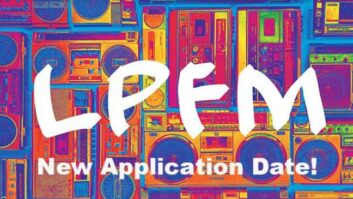
The so-called “Joint Parties,” a group of 17 commercial broadcasters and four transmission companies that sought the voluntary FM digital power increase, is urging the Federal Communications Commission to approve the compromise recently recommended by NPR and iBiquity Digital.
In a letter filed Nov. 10, the parties emphasize to the commission that 6 dB is an interim step and that their goal is to fully replicate their analog coverage with an increase of up to 10 dB.
“(W)hile some broadcasters will purchase transmission equipment to take advantage of the 6 dB improvement, others may delay purchasing the equipment necessary to upgrade stations until the final permissible digital power levels are established,” states the group.
“The interim step proposed by iBiquity and NPR will hopefully result in an appreciable number of digital power increases, which in turn should enhance the record in support of an eventual across-the-board 10 dB discretionary escalation.”
I also notice that the make-up of the group has changed a little since its members originally petitioned the commission a year ago for the digital power increase.
American Public Media, Radio One and WNYC Radio have fallen off the list of broadcasters, while the Broadcast Traffic Consortium, Nassau Broadcasting and Sacred Heart University have joined the group.
The remaining broadcast members are Backyard Broadcasting, Beasley, Black Crow, Bonneville, CBS Radio, Clear Channel, Commonwealth, Cox Radio, Emmis, Entercom, Greater Media, Journal Broadcast, Lincoln Financial and NRG Media.
While it’s not surprising the broadcast groups have filed in support of the compromise — some of them had a hand in advising NPR and iBiquity on the deal — it is interesting to note the radio groups that left were mostly non-coms, possibly reflecting the struggles over this issue before the détente.










